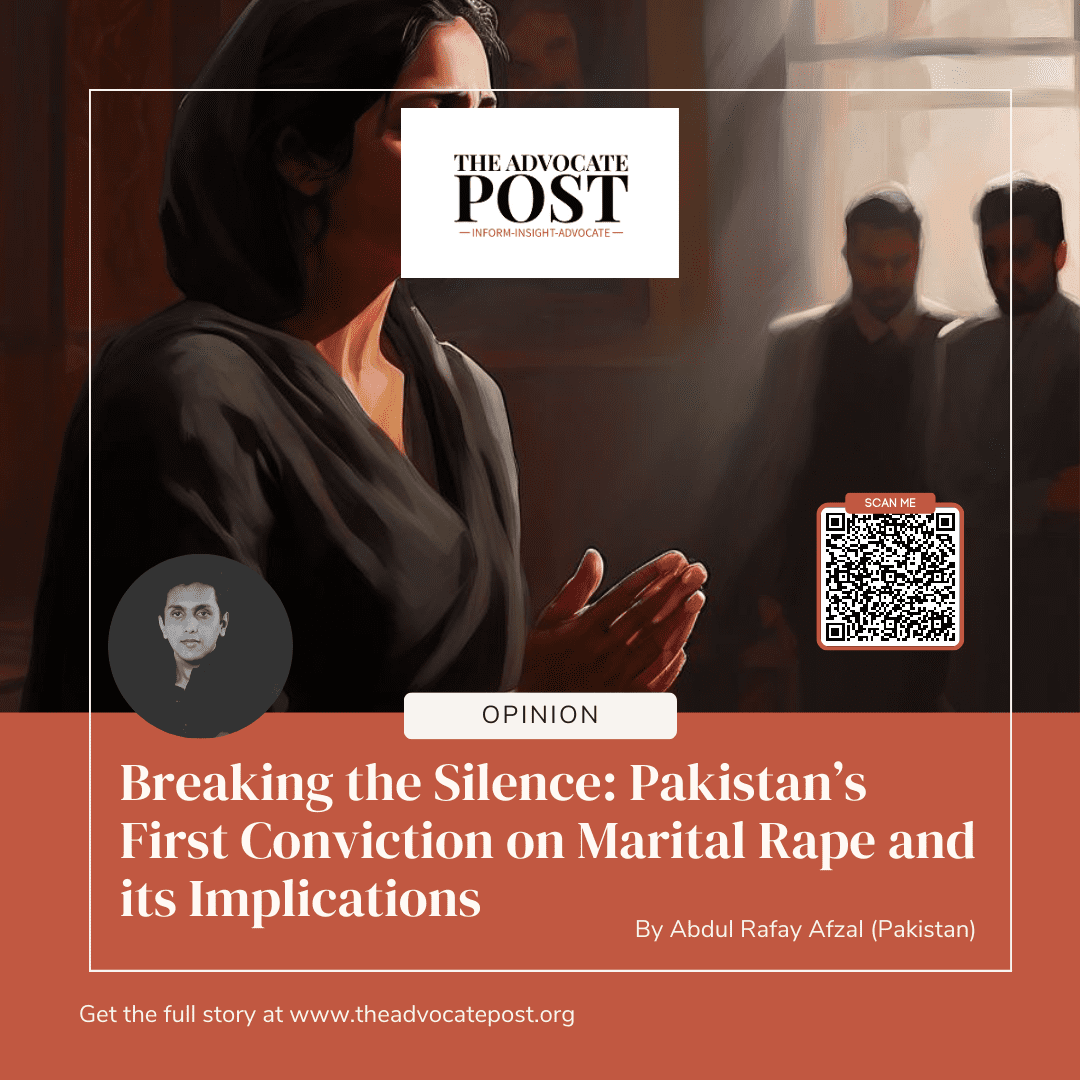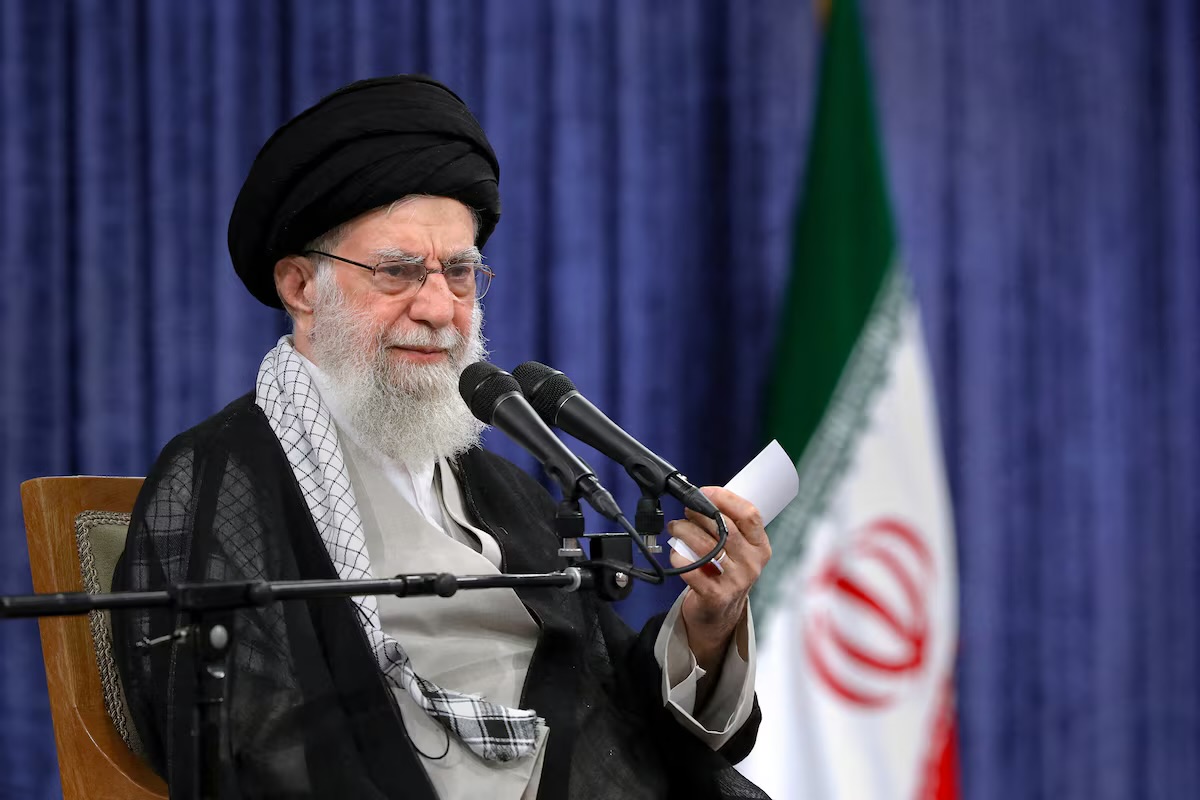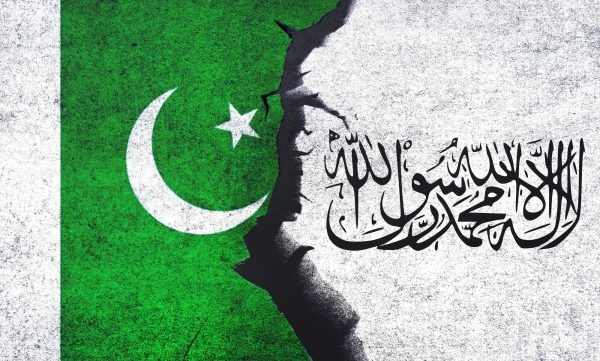By Abdul Rafay Afzal (Editor In Chief)
A Legal Aid Society attorney representing the complainant, contended that sodomy qualifies as rape according to a 2021 amendment to Section 375 of the Pakistan Penal Code (PPC), which criminalizes ‘unnatural offenses.’ This recent judgment, rooted in charges of unnatural offenses, sets a new legal precedent for prosecuting and convicting individuals for marital rape in light of the latest legislative changes to the PPC. The push to enact laws specifically targeting coercive sex is critical for bridging the gaps in legal protection for women against intimate partner violence.
By recognizing this case as a criminal offense, the judiciary has not only delivered justice to the survivor but has also paved the way for future legal reforms. This ruling fosters social awareness regarding this violent act against women. More than its legal implications, this case holds substantial social and cultural importance. In many societies, including Pakistan, marital rape has long been a taboo subject, a form of violence against women that is often ignored or even normalized. Given the deeply entrenched gender inequalities and the culture of silence around sexual violence within marriage, this recent conviction marks a significant shift in both legal and societal viewpoints.
The data from my study revealed a tendency among participants to deny the reality of marital rape while defending the institution of marriage. Marriage often appeared as an idealized concept, especially among unmarried young individuals, married older participants, and those satisfied with their married life. For these participants, the notion of a husband raping his wife was inconceivable due to the cultural reverence for the holiness of marriage. They viewed marriage as a religious command to be upheld, making it hard to accept any notion of impurity within this divinely sanctioned relationship. Some participants attributed marital rape to financial and mental stresses faced by men, suggesting that victimized wives should support their husbands by not complaining about their unmet sexual demands.
Pakistan currently lacks institutions or organizations that explicitly address marital rape. While some NGOs operate under the broader umbrella of ‘rape,’ they do not specifically cater to marital rape. Consequently, cases of marital rape are often reported under the categories of sexual or domestic abuse, preventing accurate documentation of such cases. The absence of legal avenues to discuss this issue discourages victims of marital rape from seeking justice. This ruling could compel relevant organizations to start conversations and document instances under the ‘marital rape’ heading.
Despite the progress symbolized by this conviction, it is essential to consider the potential for misuse of this judgment. Without safeguards for both men and women, there could be instances of false accusations leading to unjust penalization. The concept of marriage as a consensual contract that includes marital relations should also be acknowledged. If consent is violated, divorce remains an option. A balanced approach to legal reforms will help protect the rights of all parties involved.
The impact of this verdict extends far beyond the legal domain, prompting significant societal changes. It underscores the need for intersectional approaches to raise awareness about this issue, considering the various forms of discrimination that women face within married life, particularly regarding their sexuality. This case is set to establish a precedent for social consciousness and can serve as motivation for local human rights organizations, victims, and their families. This landmark case should act as a rallying call for all relevant stakeholders to work together towards a future where women are free from fear and violence, both within and outside marriage.






